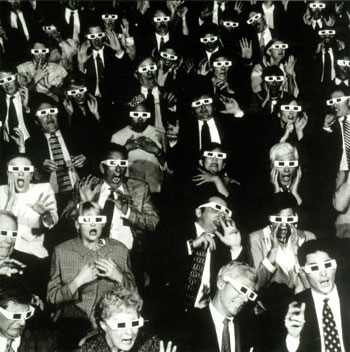
Soc. 243 (CRN 12831), Spring 2018, Tuesday-Thursday, 11:40 am - 12:55 pm, Room 100 Sociology, 31 So. Prospect St.
This course is about the mass media’s role in society. It is scholarly; we will mostly read original scholarly research. It is recommended that you have taken Soc. 43 before this course; if you have not, be prepared to do some extra preparation if you encounter unfamiliar concepts.
As a senior seminar, this course is intended to teach students something about serious scholarship, and about how to think intelligently about the media: what media scholarship is, what questions it asks, how it tries to answer them, how to make sense of it in general.The mass media is controversial and complex; there are no certain or easy answers about it. So this course does more to teach you how to think intelligently about the media than it provides you with one or another viewpoint on it.
Five books (four required, one recommended), have been ordered for the course through UVM’s bookstore:
- Gitlin, Todd. The Whole World Is Watching: Mass Media in the Making & Unmaking of the New Left. 2nd ed. Berkeley, CA: University of California Press, 2003. 978-0520239326
- Jennifer Petersen, Murder, the Media, and the Politics of Public Feelings: Remembering Matthew Shepard and James Byrd Jr., Indiana University Press (August 18, 2011), 978-0253223395.
- Whitney Phillips, This Is Why We Can't Have Nice Things: Mapping the Relationship between Online Trolling and Mainstream Culture (MIT Press) Paperback – September 2, 2016 ISBN-13: 978-0262529877
- Zeynep Tufekci, Twitter and Tear Gas: The Power and Fragility of Networked Protest, Yale University Press Hardcover – May 16, 2017 ISBN-13: 978-0300215120
- Recommended: Brooke Gladstone and Josh Neufeld, The Influencing Machine: Brooke Gladstone on the Media, W. W. Norton & Company; 1 edition (May 7, 2012) ISBN-13: 978-0393342468
Ebook (e.g., Kindle) versions of these books, if available, are acceptable, as long as you bring a device for reading the book to class when the book is under discussion. (There’s evidence that understanding is better if you read paper books rather than on a screen.) Additional required readings can be accessed via the schedule of assignments.
Assignments: class participation is required and counts for 10% of your grade. You will also turn in reading journals (10%) weekly, present an author overview to the class (10%), write a semiotic analysis (10%), and write a research paper with multiple components (60%). There may be other short assignments during the semester as well. I am usually happy to be flexible with deadlines if you notify me one week in advance; if you notify me later than that, I won't be. All assignments must be completed to pass the course.